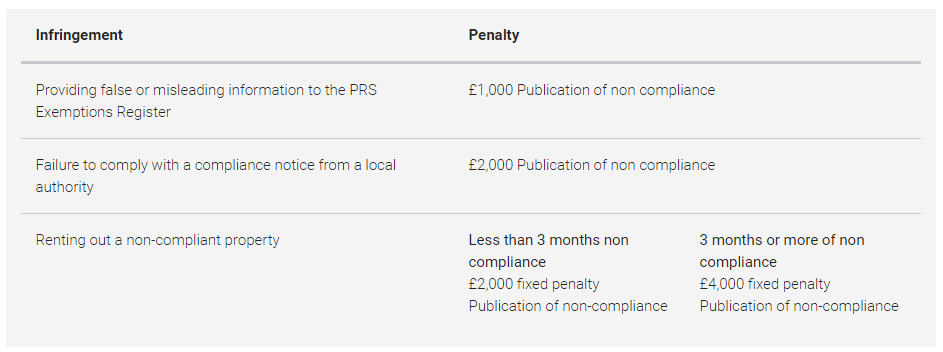
As of 1st April 2018, proposed changes to The Energy Act 2011 regarding EPC ratings on leased property will mean that all new lettings and tenancy renewals on commercial and residential property must be accompanied by an EPC rating of E or above.
If a property does not have a valid certificate or is awarded a lower value of F or G, the lowest energy efficiency rankings available, then it will be illegal to bring it to market or continue the existing tenancy without justifiable improvements being made.
According to the Energy Performance of Buildings Register, around 18% of non-domestic properties have an EPC grading of F or G.
Improving the energy efficiency of a building in advance of the new legislation will reduce the risk of penalties, loss of rental income or a decrease in property value when it comes to renewing tenancy agreements or re-marketing the property.
If the building does not meet the required energy performance rating, the following will be negatively impacted:
Exemptions will apply for certain buildings via a secondary legislation. Examples of this include listed buildings and properties with a short lease defined as less than six months. Further details on all exemptions can be found on the Residential Landlords Association (RLA) website.

The Residential Landlord Association (RLA) outline the penalties that will be in place if a property is non-compliant and will be enforced by Local Authorities and Trading Standards.
The change in legislation is a step forward in making the country’s buildings more energy efficient and to reduce carbon emissions from the property sector.
Understanding and acting upon your responsibilities and obligations as a landlord will ensure that you do not end up with a period where the property is vacant, unable to be let and is losing money whilst works are being completed to improve a sub-standard EPC rating.
Kempton Carr Croft can: